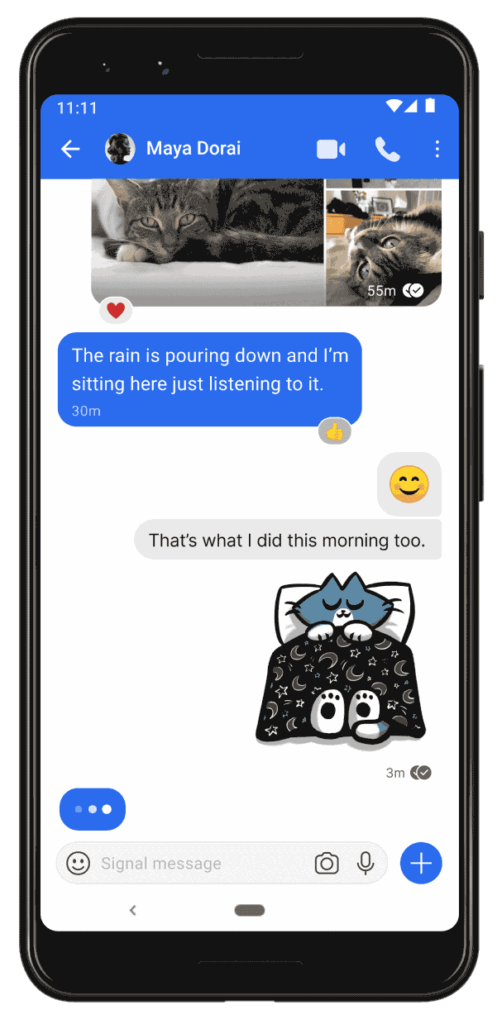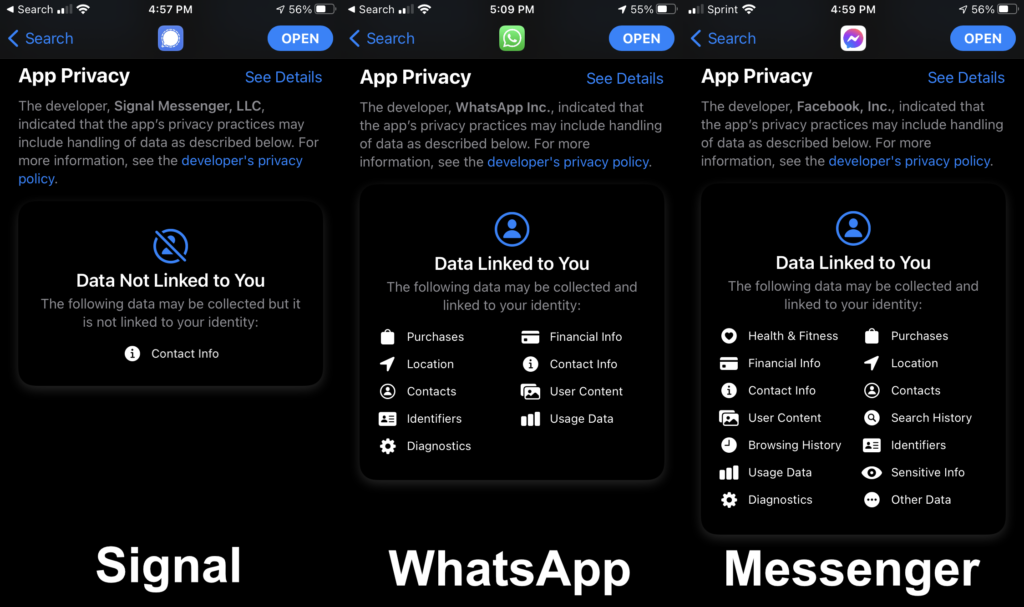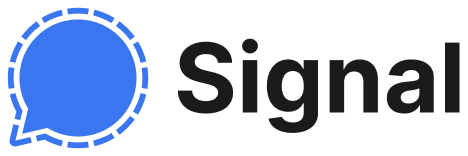In the age of constant contact, posting, uploading, and sharing, you might not think twice about what you use to directly message friends and family. A lot of us are inclined to stick with what’s already available. However, new trends in the world indicate that sticking with what you have may not be the best idea. Maybe it is time to start thinking about switching to Signal as your primary messaging app. Learn more about why people are switching from WhatsApp.
What is Signal?
Signal is an instant-messaging app available to iPhone, Android, and most desktop environments. To most, Signal has what you expect, a textbox and a send button, stickers, calls, and group chats. What is special about Signal is who made it and the reason it was made.
Signal is based off a messaging protocol called The Signal Protocol. The Signal Protocol is special because it provides a complete end-to-end encrypted connection. Signal is owned by The Signal Foundation, which is a registered non-profit charity in the United States.
Signal is full featured and supports many features available in other messengers. It has stickers, Facetime, phone calls, emojis, and group chats.

Why should you switch?

- Completely free, and always will be
Signal is funded by grants and donations. It is free for everyone to download and use. It has no ads, premium features or trackers. - End-to-end encrypted
End-to-end encryption is important in our ever digital world because it ensures no one can snoop on your conversation. It works by encrypting every message, image, phone call, and anything else you send using a secret key only available to the sender and recipient.
Why should you care? It is a well known fact that companies like Facebook, Google, and even your own government love to absorb as much data about your life as possible. If you send an email detailing your awkward love letter, there is a good chance Uncle Sam and Google are reading it. If you are trying to discuss sexual health with a trusted friend on FB Messenger, good chance Facebook and Uncle Sam are reading it. Privacy can only be ensured with end-to-end encryption. - Operated by an independent non-profit charity
The app is ran by The Signal Foundation, an independent 501c3 nonprofit, and is not owned by any other major tech company. Most companies that offer free products are selling your information. For example, Facebook builds an entire profile which is predicted to know you better than yourself for the sole purpose of selling it to advertisers. Facebook has shareholders to pay, and as such must maximize the information it has on you to maximize its profits.
Being a non-profit does not have an interest in profit margins, and instead focuses on their mission statement: allowing its users “To Speak Freely.” - Does not collect data on it’s users
Kinda, the only data Signal collects is its user’s phone numbers. A phone number is used to register your account, everything else is encrypted and not able to be accessible. By design Signal does not have access to contacts, conversation lists, location history, or any user profile information. - Retains as little data as possible
Even though the data that sits on Signal’s servers is encrypted so only the user can read it, it is setup to ensure the servers forget any data that is sent. An encrypted text can sit on a server until it is delivered to a recipient, then it is instantly deleted from the servers. - Does not know who is messaging who
Signal has a unique feature called sealed sender, which encrypts who a message was sent by. All an attacker could know is that a user received a message, but not who by. Imagine a scenario where you need to message a therapist, but don’t want anyone knowing that you are seeing a therapist. This feature ensures that all anyone could ever know is that the therapist received a message, but not what the message said or who sent it, except the therapist. - Guaranteed to go to the right person
Signal has a feature called Safety Numbers. Safety numbers are a unique number calculated from the keys of the sender and recipient. This unique number is nearly impossible to fake. You can optionally verify this number matches with the other party to ensure your conversation is safe and private. - Open source
The Signal protocol, apps, and server code is free and open to view for everyone. This allows experts to analyze the code and detect flaws (which they have not found at the time of writing). This is an important tool to ensure the quality and security of any system. - Trust by the privacy community
-Used by journalists, activists, and whistleblowers alike. It is the trusted gold-standard messaging application for privacy and security, used by millions of users.
Where to get Signal
Signal is free to download and setup at signal.org. You must have a phone number to setup an account. If you support what they do and want to support true privacy and security, you can donate to them at signal.org/donate.
